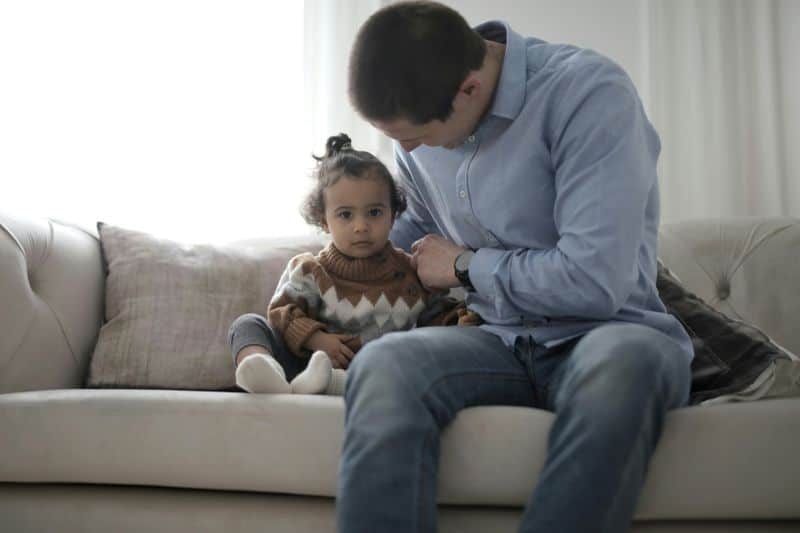Every parent wants a close, loving relationship with their children, but sometimes our own behaviors can accidentally create distance instead of connection.
Without realizing it, certain habits can make kids feel unheard, controlled, or undervalued, causing them to pull away emotionally.
Understanding which parenting patterns can harm your bond is the first step toward building a healthier, more trusting relationship with your children.
1. Overprotectiveness
Shielding your child from every bump and scrape might feel like love, but it can actually prevent them from growing into confident, capable individuals. When you constantly step in to solve problems or remove obstacles, kids never learn to trust their own judgment or develop resilience.
Over time, children who are overprotected often feel suffocated and incapable of making their own decisions. They may start hiding things from you or rebelling just to taste some freedom.
Allowing age-appropriate risks and challenges helps kids build confidence and problem-solving skills. Give them space to stumble and learn from their mistakes while you offer guidance from the sidelines instead of jumping in to rescue them constantly.
2. Lack of Emotional Availability
Being physically present isn’t the same as being emotionally available. Children need you to truly listen, validate their feelings, and offer comfort when life gets tough.
When parents are constantly distracted, stressed, or emotionally distant, kids feel invisible and unimportant. They learn that their emotions don’t matter, which can lead them to shut down or seek emotional support from others outside the family.
Put down your phone during conversations, make eye contact, and show genuine interest in their day. Even a few minutes of focused, heartfelt connection can make your child feel valued and understood, strengthening your bond in ways that really count.
3. Excessive Expectations
Did you know that pushing your child to be perfect in everything can actually backfire? When expectations are sky-high and unrealistic, children live under constant pressure and fear of disappointing you.
Kids who can never meet their parents’ standards often feel like failures no matter how hard they try. This stress can lead to anxiety, burnout, and eventually, emotional withdrawal as they distance themselves from the source of pressure.
Celebrate progress over perfection and recognize that your child is their own person with unique strengths and limitations. Encourage effort and improvement rather than demanding flawless results, and watch your relationship flourish.
4. Constant Criticism
Nothing crushes a child’s spirit faster than hearing what they did wrong all the time. Sure, constructive feedback helps kids improve, but when criticism becomes your default mode of communication, children start believing they can never measure up.
Kids who face relentless criticism often develop low self-esteem and anxiety. They might avoid sharing their achievements or trying new things because they expect disapproval instead of encouragement.
Balance is key—celebrate the wins, acknowledge the effort, and offer gentle guidance when needed. Your words shape how your children see themselves, so make sure you’re building them up more than tearing them down with negative comments.
5. Inconsistent Discipline
Imagine not knowing if breaking a rule today will get you grounded or ignored—that’s what inconsistent discipline feels like to a child. When consequences change based on your mood or the situation, kids feel confused and resentful.
Unpredictable parenting creates an unstable environment where children can’t trust what to expect. They may act out more frequently or become anxious, never quite sure what will trigger punishment.
Establish clear, fair rules and stick to them consistently. Children thrive on structure and predictability, and when they understand the boundaries, they feel safer and more secure in your relationship.
6. Lack of Appreciation
Everyone wants to feel seen and valued, especially children who are still figuring out their place in the world. When you fail to acknowledge their efforts, achievements, or kind gestures, they start feeling invisible and unimportant.
Kids who don’t receive appreciation at home often seek validation elsewhere, sometimes in unhealthy ways. They might stop trying to impress you or sharing their accomplishments because they assume you don’t care anyway.
A simple “I’m proud of you” or “I noticed how hard you worked” can make all the difference. Genuine appreciation costs nothing but means everything to a child who wants to make you proud.
7. Micromanaging
With a watchful eye on every detail, some parents believe they’re helping when they control every aspect of their child’s life. From choosing outfits to dictating friendships, micromanaging sends the message that you don’t trust your child’s judgment.
Children who are constantly controlled often feel suffocated and incapable of making decisions. As they grow older, they may rebel dramatically or become overly dependent, lacking the skills to navigate life independently.
Step back and allow your child to make age-appropriate choices, even if they’re different from what you’d pick. Mistakes are powerful teachers, and giving them autonomy shows you believe in their ability to learn and grow.
8. Not Respecting Privacy
Snooping through your child’s phone, reading their diary, or barging into their room without knocking might seem like responsible parenting, but it actually destroys trust. Everyone, including children, deserves boundaries and personal space.
When privacy is violated, kids feel disrespected and betrayed. They learn to hide things more carefully rather than being open with you, creating distance and secrecy in your relationship.
Build trust by respecting their privacy while keeping communication channels open. Let them know you’re available to talk without judgment, and they’ll be more likely to come to you voluntarily when they need guidance or support.
9. Comparing Them to Others
Hearing “Why can’t you be more like your sister?” or “Look how well your cousin is doing” is one of the quickest ways to make a child feel inadequate and unloved. Constant comparisons diminish their unique identity and worth.
Children who are always measured against others develop deep insecurities and resentment. They may distance themselves from both you and the person they’re being compared to, feeling like they’ll never be good enough.
Celebrate your child’s individual strengths and progress without stacking them up against siblings, classmates, or anyone else. Each child has their own path, and your job is to support theirs, not wish they were someone different.
10. Using Guilt as a Parenting Tool
Phrases like “After everything I’ve done for you” or “You’re breaking my heart” might get immediate compliance, but they come at a steep emotional cost. Guilt-tripping is a form of manipulation that breeds shame rather than genuine understanding or gratitude.
Children who are constantly guilt-tripped learn to associate love with obligation and emotional debt. They may grow up feeling they can never repay you or that their needs are burdensome, creating lasting resentment.
Express your feelings honestly without weaponizing them. Instead of guilt, teach empathy and responsibility through open conversations about how actions affect others, fostering genuine care rather than shame-based compliance.











